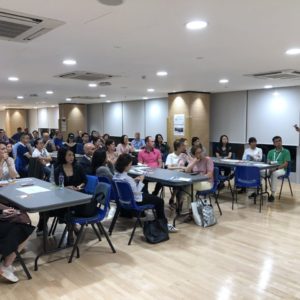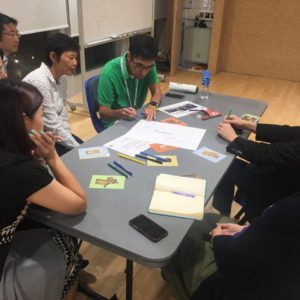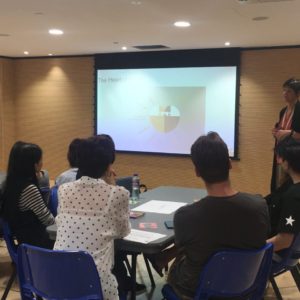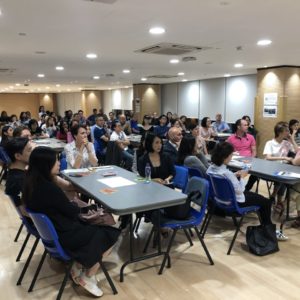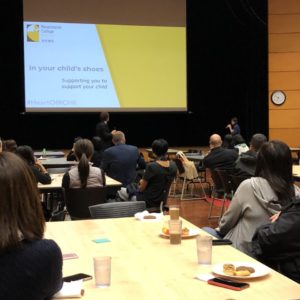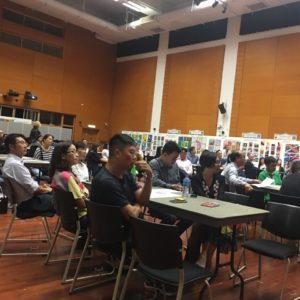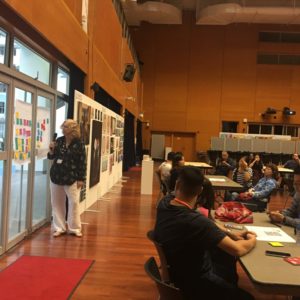Parenting
-
Finding The Right Words
-
In Your Child’s Shoes
-
Listening & Learning
-
What style of parenting works best?
Finding The Right Words
School counsellor Moira Conroy-Stocker gave a thorough and interesting insight into aspects of emotional literacy with different age groups, supported by Stephanie Howdle-Lang. Our parents took part in activities that can develop an understanding of emotions and looked at the development of the brain and ways to encourage your child to talk about how they are feeling with you. The presentation used on the evening, along with extensive notes, is available here. We were lucky to have a number of our Primary Emotional Literacy Support Assistants (ELSAs) join us for the event. At the end of the session, books chosen by our ELSAs were shared, and in case you didn’t have the opportunity to see the books, we have shared them again here. The article about the development of the adolescent brain by Andrew Fuller can be found here. Andrew’s website is full of useful articles.
Thanks to all the nearly 100 parents who joined us and participated so enthusiastically!
In Your Child’s Shoes
In the first of the Wellbeing Series of Parent University at RCHK, faculty members at RCHK spent time finding out more from parents about what they want to know more about. Our counsellor, Moira Conroy-Stocker, shared information about child development, focusing on the five key areas of physical development, intellectual development, language development, emotional development and social development. We shared a video with parents giving more information about what this looks like for an RCHK student. We gathered information from parents who attended through discussion and by taking data from question charts around the room. Our technology coaches, Phil Knight and Jay Prohaska, were our filmmakers for the event. One of the films they made shared some information we gathered from students about what they wished their parents knew. Geoff Wheeler and Stephanie Howdle-Lang then shared some suggestions about ways to help children to open up to their parents. Some of the tips they shared are available on this handout. We used the data to plan the next four sessions of the Parent University Wellbeing Series.
Listening & Learning
Thank you so much to the parents and helpers who came out to join us on the evening of 26th September. Geoff Wheeler and Stephanie Howdle-Lang ran a session to find out more about what support parents would like for the year ahead. We looked at self-determination theory and particularly basic psychological needs theory which states that people need autonomy, competence and relatedness to develop intrinsic motivation. Together, we explored parenting scenarios and what we could do to increase autonomy in specific situations, followed by a discussion of more generally promoting autonomy. The parents present then looked at thirteen different choices for upcoming sessions and cast their votes on which they would like to see. The results have been used to plan the upcoming sessions, and the titles will be updated on the website soon. To finish the session, Geoff shared an approach called emotion coaching, including the stages of that approach and finally Stephanie and Geoff shared some things to be on the alert for in our children in troubled times, such as those Hong Kong is currently experiencing, as well as simple tips for what to do.
The full presentation is available to view here.
The “Parenting in Troubled Times” handout is available here.
What style of parenting works best?
For the final workshop in our Wellbeing Series of Parent University at RCHK we explored parenting styles and approaches. Following a discussion about what parents’ hopes are for their roles, we found out what the students at RCHK want from parents – and recognised the similarities! The world cloud shows what the students listed as important, with the most common words largest.
Moira Conroy-Stocker led us through three of the different parenting styles – authoritarian, authoritative and permissive – using some scenarios to explain what those styles might look like in practice. We explored strengths-based parenting and active constructive responding as two possible strategies in parenting. Stephanie Howdle-Lang outlined strengths-based approaches, which including considering parents’ own character strengths and thinking about how to spot strengths in children. Active constructive responding included some superb role play by Geoff Wheeler and Moira Conroy-Stocker and encouraged us all to think more about how we respond. Ana Chan provided conversation and support in Cantonese throughout the event. We concluded with a discussion about how to manage when parenting styles clash. As usual, the presenters were massively overplanned, so there is far more information in the slide deck than there was in the presentation itself! Parent University: The Wellbeing Series will resume next academic year. Thank you for your support this year!

